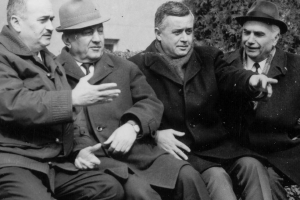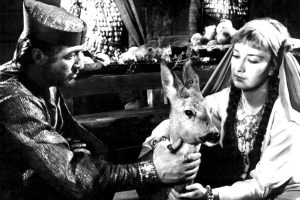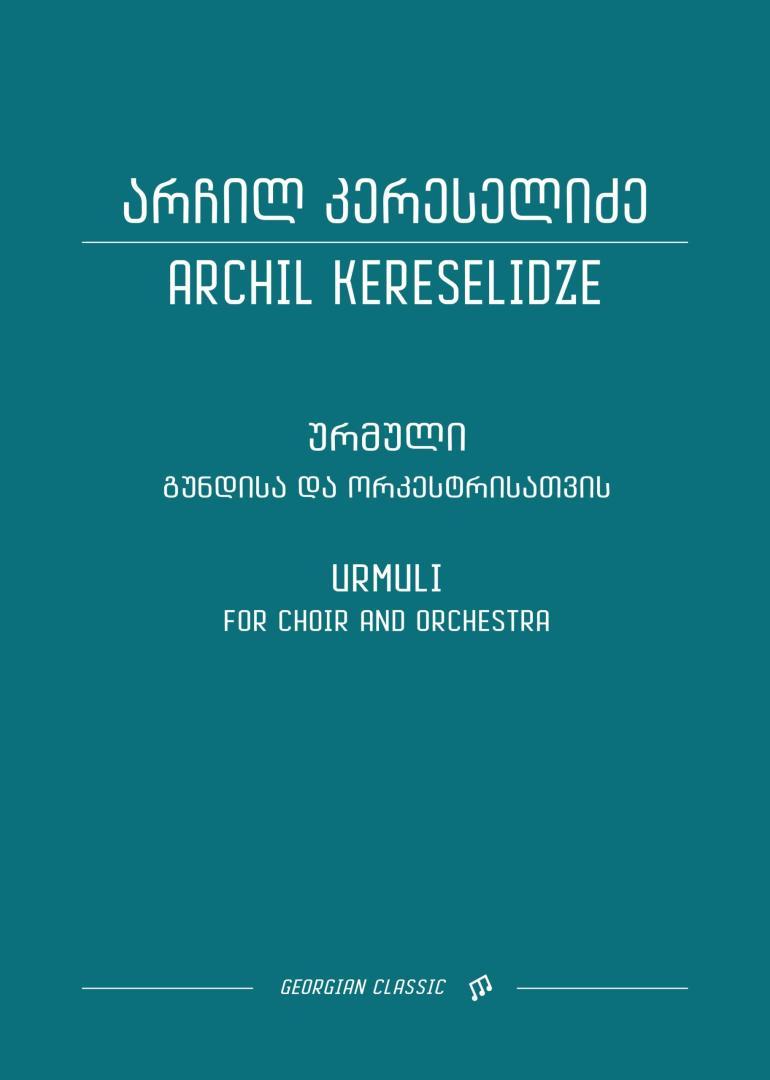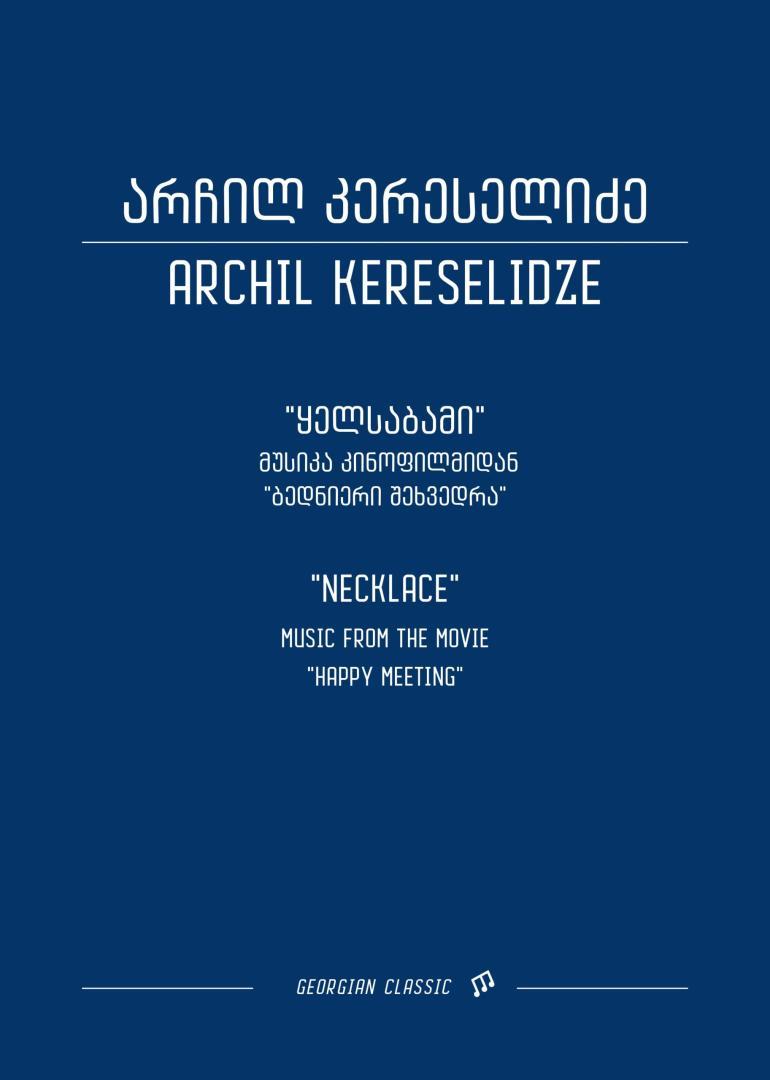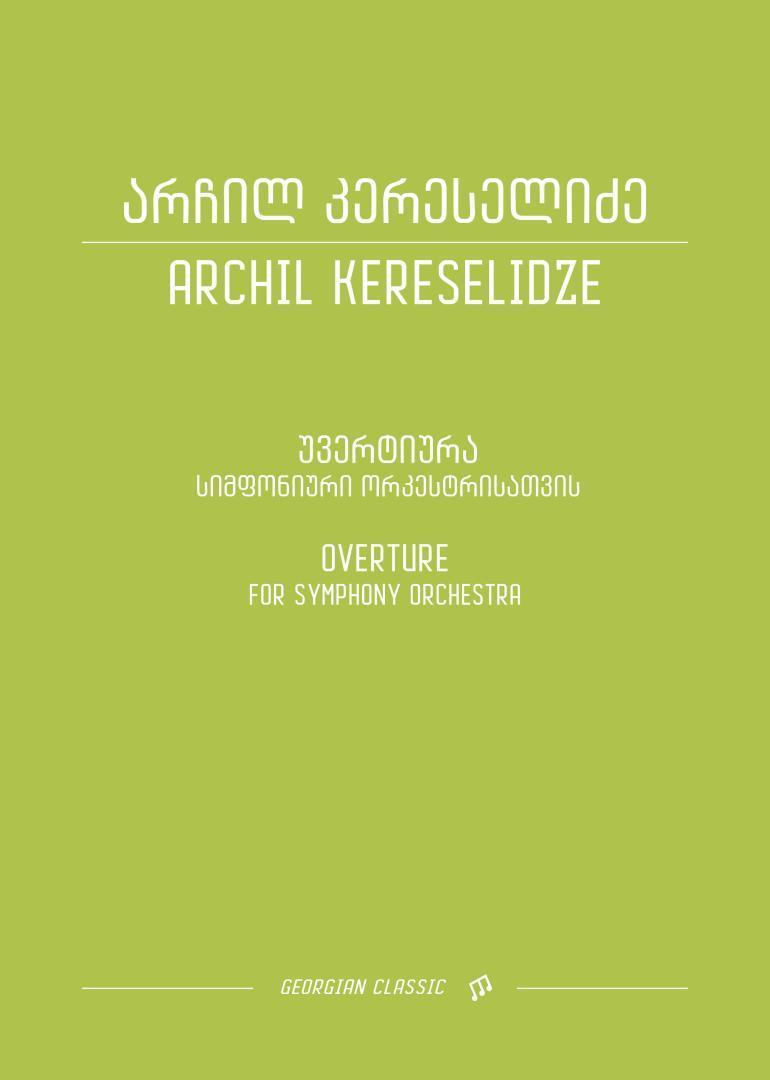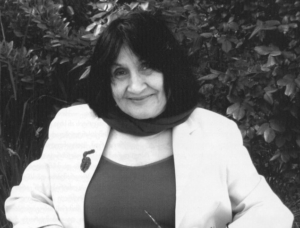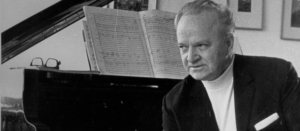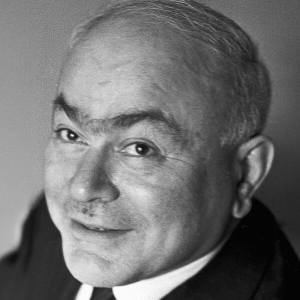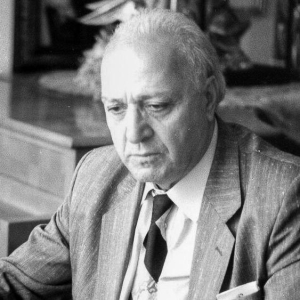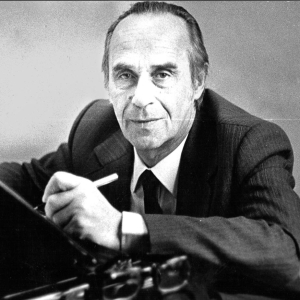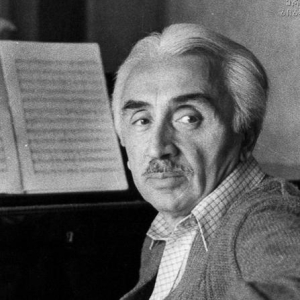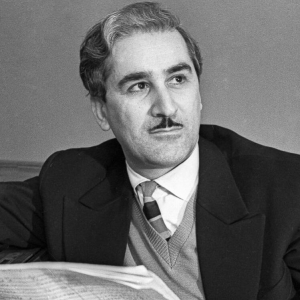Archil
Kereselidze
Archil Kereselidze
(1912 – 1971)
Archil Kereselidze is a Georgian composer, an outstanding representative of the Georgian school of composition. His music includes various genres, among which are: Georgian variety, operetta, dramatic theater, film music. People’s Artist of Georgia (1961).
Date of birth – December 24, 1912
Place of birth – Ghunib, Dagestan, Russia
Date of death – December 21, 1971
Place of death – Tbilisi, Georgia
He is buried in Didube Pantheon of Writers and Public Figures – Tbilisi
BIOGRAPHICAL DATA
1934 – Graduated from Vano Sarajishvili Tbilisi State Conservatory, faculties of composition (class of S. Barkhurdariani) and piano (class of Anastasia Virsaladze);
1939 – P. Tchaikovsky Moscow State Conservatory in composition (teachers: G. Litinsky, D. Kabalevsky, N. Myaskovsky);
1940 – 1944 – Teacher (polyphony) at Vano Sarajishvili Tbilisi State Conservatory;
1940 – 1946 – Director of the musical part of the K. Marjanishvili Drama Theater;
1953 – 1971 – Music editor of “Georgian Film” film studio;
AWARDS AND RECOGNITION
Member of the Creative Union of Cinematographers of Georgia
Member of the Union of Composers and Board of Directors of Georgia
Order of Honor
1950 – Honored Worker of Georgian Art
1958 – Honored Art Worker of North Ossetia
1961 – People’s Artist of Georgia
1974 – Zakaria Paliashvili Prize (posthumous)
ARCHIL KERESELIDZE
(1912 – 1971)
SELECTED WORKS
MUSIC FOR THE THEATER
1945 – “Cut Off” – Opera in 4 Acts – (Libretto – L. Mgeladze, Ir. Gotsiridze)
1946 – “Bashi-Achuk” – Opera in 4 Acts – With The Third Edition “Berucha” – (Libretto – Ch. Geleishvili)
1961 – “Rainbow” – Opera in 3 Acts – (Libretto – Ch. Geleishvili)
1965 – “Victim” – Opera in 2 Acts
1947 – “Nazibrola” – Ballet in 3 Acts – (Libretto – L. Gavaramadze)
1973 – “Berikaoba” – Ballet in 1 Act
1945 – “Actress’s Love” – Musical Comedy
1948 – “The Power Of Song” – Musical Comedy
1949 – “Under The Tbilisi Sky” – Musical Comedy
1951 – “Three Brides” – Musical Comedy
1961 – “Manana” – Musical Comedy
1962 – “Jazomania” – Musical Comedy
ORCHESTRAL MUSIC
1940 – Symphony N 1
1944 – Symphony N 2
1966 – “Symphony of The Moon”
1940 – Solemn Overture – for Symphonic Orchestra
1942 – Solemn Suite – for Symphonic Orchestra
1951 – Suite – for Symphony Orchestra
1961 – Overture-Carnival – for Symphonic Orchestra
1963 – Holiday Overture – for Symphonic Orchestra
1966 – Holiday Overture – for Symphonic Orchestra
1941 – Concerto for Piano and Symphonic Orchestra No. 1
1949 – Concerto for Piano and Symphonic Orchestra No. 2
1947 – Concerto for Violin and Orchestra
1944 – Jazz Concert – for Symphonic Orchestra
VOCAL-INSTRUMENTAL MUSIC
1949 – “Tbilisi” – Cantata
1968 – “Song About Georgia” – Cantata – (Text – G. Tabidze)
1972 – “Vedreba” – Cantata – (Text – G. Tabidze)
AUTHOR OF MANY SONGS AND MUKHAMBAZI
FILM AND THEATER MUSIC
MUSIC FOR THE THEATER – THE AUTHOR OF MUSIC FOR MORE THAN 100 PLAYS. BETWEEN THEM:
“David Agmashenebeli”, “King Erekle”, “Teacher”, “Romeo and Juliet”, “Solomon Isakich Mejganuashvili”, “Antony and Cleopatra”, “Moso Star”, “Kharataant Kera”, , “A man is a man?”, “Marine”, “Maya Tskneteli”, “Akhali Fudze”, “Sanapiroze”, “Old Vaudevilles”…
FILMOGRAPHY
1948 – “Keto and Kote” – director – Vakhtang Tabliashvili, Shalva Gedevanishvili
1949 – “Happy Meeting” – director – Nikoloz Sanishvili
1950 – “Spring in Saken” – director – Nikoloz Sanishvili
1955 – “Sea Trail” – director – Tengiz Abuladze, Rezo Chkheidze
1956 – “Our Yard” – director – Rezo Chkheidze
1958 – “Fatima” – director – Siko Dolidze
1958 – “Other People’s Children” – director – Tengiz Abuladze
1958 – “Two Families” – director – David Kandelaki
1960 – “Door to door” – director – Merab Kokochashvili, Otar Abesadze
1962 – “Me, Grandma, Iliko and Hilarion” – director – Tengiz Abuladze
1970 – “The Grandmaster’s Right Hand” – director – Vakhtang Tabliashvili, Devi Abashidze
1970 – “Girl and Soldier” – director – Temur Palavandishvili
ANIMATION
1950 – “Nebieri” – director – Shalva Gedevanishvili
1950 – “Brave Mountaineers” – director – Arkady Khintibidze, Vladimir Mujiri
1951 – “Jafara” – director – Arkadi Khintibidze, Sandro Shanshiashvili
1951 – “Winged Friends” – director – Vladimir Mujiri
1952 – “The Happiness of Poverty” – director – Arkady Khintibidze, Vladimir Mujiri
DOCUMENTARY
1958 – “Sunny Adjara” – director – Shalva Chagunava
Archil Kereselidze
(1912 – 1971)
“The entire secret of Archil Kereselidze’s work, – according to film director Revaz Chkheidze, – is that he stood with extraordinary strength to the sound of his native land, every sound coming directly from the depths of the people’s souls, from its depths.”
Even now, his music is very popular. The music composed by Archil Kereselidze for dramatic plays and movies made him quite well-known at the time, and he was one of the faces of the Georgian variety show. From a contemporary viewpoint, Archil Kereselidze contributed significantly to the growth of Georgian film music. It took considerable effort before the first movie.
The composer Zakaria Paliashvili and Anastasia Virsaladze, one of the founders of the Georgian piano school, were forerunners of his profession. The piano concert – Symphony No. 1, which was performed in various countries, was the final outcome of a fruitful and successful year of study at the Moscow Conservatory. Konstantin Dankevich, a Ukrainian composer, compared this symphony to “fresh air entering a stuffy room.” Piano sonata, toccata, and solemn overture were among the other successful pieces created during this time.
With his opera “Bashi-Achuk,” the composer completed a significant phase of his creative process. The opera’s 1946 world debut at the Tbilisi Opera and Ballet Theater had an enormous success. Here, the soulful melodic aspect of Archil Kereselidze took on a defined, expansive expression. The composer also demonstrated other professional abilities. The effective development of theatrical and ensemble forms, as well as the demonstration of intriguing polyphonic ideas, were recognized by critics. However, critics also noticed some issues, mostly dramaturgical in nature and originating from the opera’s libretto. This is the reason the composer kept modifying the piece. On the stage of the Tbilisi Opera and Ballet Theater, the opera was performed in a new release and produced under the name “Berucha” (1955).
Since the 1940s, Archil Kereselidze has actively collaborated with the Tbilisi Musical Comedy Theater. He was among the composers who helped establish the national operetta genre. His operetta “Under the Tbilisi Sky” was very popular. (1949).
In regards of Archil Kereselidze’s creative life, it is important to note that Zakaria Paliashvili included the dances he wrote for “Daisy”—”Pharikaoba” and “Mtiuluri”—while editing the opera.
For the composer, the collaboration with the director Vakhtang Tabliashvili was especially essential. He for the first time requested the young composer to write a drama, and their first collaboration was the play Solomon Isakich Mejghanuashvili, which was performed in the Theater of Kote Marjanishvili, in 1940. From this moment on, the composer’s life entered a new phase regarding the dramatic theater, as he composed the music for about 100 plays and significantly contributed towards thier success. With directors Vasil Kushitashvili, Archil Chkhartishvili, and Vaso Godziashvili, he collaborated on dramas. Additionally, he worked with the Tbilisi drama theaters Rustaveli and Griboedov, Youth and Miniatures theatres, Kutaisisi, Sukhumi, and Telavi drama theatres as well.
Old Vaudevilles was one of the most important plays in the Marjanishvili Theater’s history and Archil Kereselidze’s theatrical creative life (director V. Godziashvili). The music, which at the same time developed an atmosphere full of high-spirited enthusiasm and excellent taste, was one of the major elements in the performance.
The first time Archil Kereselidze connected with a cinematographer was via Vakhtang Tabliashvili and his movie “Keto and Kote.” In this situation, the composer had an extremely challenging mission to do. He had to understand the opera of Victor Dolidze from a cinematographic viewpoint.
At the same time, the film’s dramaturgy needed to be modified with fresh content. In harmony with Dolidze’s style, Kereselidze’s new compositions “Ertkhel Vikhile,” “Mukhambazi” (“Gind medzinos”), and “Dance with Chandles” were combined, and Kereselidze gave everything a single symphonic breath. Finally, the musical component of this movie was responsible for its exceptional success. It wouldn’t be an exaggeration to say that “Keto and Kote” is a ballad about
Georgia – according to the Polish newspaper “Szczecinski”. The New York newspaper “Daily Walker” wrote – “Hollywood rarely creates something this unique.”
The composer-playwright Archil Kereselidze, an interesting figure originally appeared in Georgian cinema. One of the best examples of this is the film “Magdana’s Lurja” (directed by Revaz Chkheidze and Tengiz Abuladze), in which Kereselidze’s musical compositions “Menachkhshire’s Song,” “Urmuli,” and “Korali” play a significant role in expressing the psycho- social drama. This music has a distinct life of it’s own while also playing as important point in the movie. So, this reffers to the musical soundtracks as well, he wrote for the movies like as
– “Chveni ezo” (directed by Revaz Chkheidze), “Fatima” (directed by Isiko Dolidze), “Skhvisi shvilebi” (directed by Tengiz Abuladze), “Didostatis marjvena,” etc.
As an editor, Archil Kereselidze made a significant contribution to Georgian theater and cinema. He also managed the music department at the Kote Marjanishvili Drama Theater, the Tbilisi Miniatures Theater, and the “Georgian Film” studio in Tbilisi for years.
The melodies from plays, movies, and songs like “Sapovnela,” “White Swan,” “Isev midikhar” and “Necklace,” which has remained as the symbol for Georgian television for the past few years, continue Archil Kereselidze’s creative life. Gulbat Toradze, a musicologist, characterized his love song “Vedreba” as “Georgian “Ave Maria.” At the time, these pieces were essential to the development of Georgian pop music.
“Archil Kereselidze was the soul and elegance of Georgian music,” said composer David Toradze. “His works are essential component of the musical culture of our nation.”
Musicologist
Tamar Tsulukidze
English Language Translator
Tamar Kharadze









